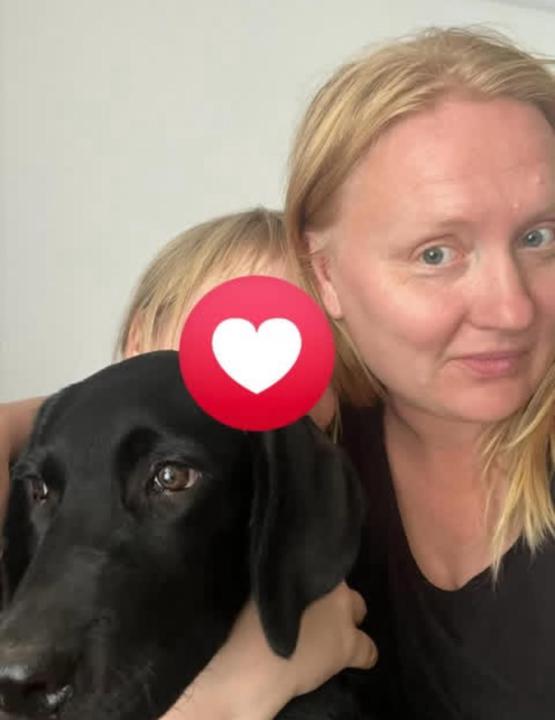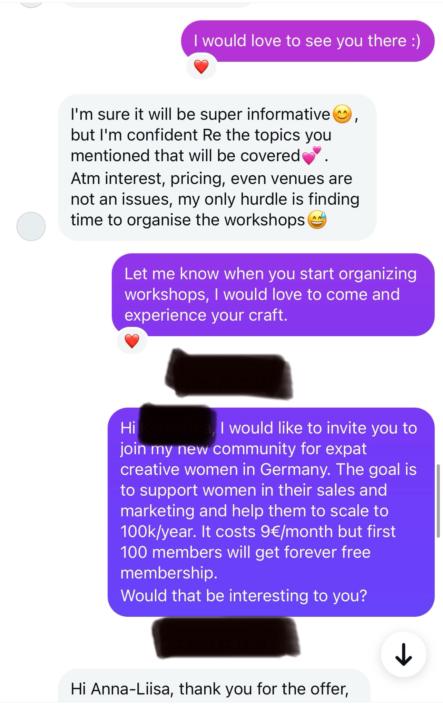
Write something
5 Beliefs That Keep Women Stuck in Corporate Jobs (True or False?)
Hey everyone 💛 I’m working on a YouTube video for The Workshop Way™, and I’d love your thoughts before I film it. These are 5 common beliefs women have about starting a creative business, and how I see them. Please read through and tell me in the comments: Does something resonate? Is something missing? Would you add your own belief or experience? Your input will help me make the message even stronger and more supportive for women who are still afraid to start. “Entrepreneurship is hard.” True… and false. Being employed (or unemployed) is also hard. It’s difficult to find a job that aligns with your values AND respects your private life. Even in a “dream job,” you still need to manage impressions, politics, and relationships with people you’d normally avoid. In your own business, you only need to make one person happy, your customer. And the best part: you get to choose your customers. “Entrepreneurship means constant hustle.” (selbst & ständig) False. You decide when and how you work. I know entrepreneurs who work 2 hours a day and earn more than many full-time employees. It depends on your business model, your pricing, your systems, and your energy, not on hustling. “I need a business degree.” False. You need a skill, a way to create value, and the willingness to learn step by step. Not a degree. Not a perfect plan. Business nowadays is simple: Solve a real problem for real people. “If I fail, I will lose everything.” False. You can start small, safely, slowly. You don’t need to quit your job or take huge risks. Failure is feedback, not a catastrophe. “It’s not the right time.” False AND true. There is never a perfect time. But your life changes the moment you stop waiting for perfect conditions — and start with what you have. What do you think? Which belief do you hear the most from others? Which one did you struggle with before starting? Do you feel something important is missing here? I’d love to hear your experiences, and I might include your insights in the video (with your permission )
Poll
2 members have voted
0
0
Let’s talk about goals. The real kind
We all love setting goals. But how many of them actually get done? Sometimes the problem isn’t the goal itself, it’s the size of it. We set something so big and shiny that our brain freezes before we even start. Here’s a little experiment for this week 👇 1️⃣ Pick ONE goal that you want to achieve in November. Something that would make you proud, not overwhelmed. Example: • Finish my website draft • Sell my first workshop • Record my first video • Reach out to 3 potential clients 2️⃣ Break it down — what’s one small thing you could do today to move toward it? And then share it below 👇 Let’s create a thread of clear, simple November goals — and cheer each other on as we get them done. I’ll go first in the comments. 💬
Do you rest like a German or like a migrant woman?
“When was the last time you had a proper holiday?” my business coach asked me recently. I couldn’t answer her, because I knew that for her (born and raised in Germany) and for me, the meaning of “holiday” is completely different. You see, I was born in the Soviet Union and grew up in freshly capitalist Estonia. Holidays, for us, meant doing other kinds of work: catching up on housework, repairing things, visiting relatives (which often meant working even harder). Working was a status symbol. Resting felt like laziness. Even though I came from a family that wasn’t poor, maybe even slightly above average, going on a holiday trip was simply too expensive. In Germany, taking a week or two off and spending thousands of euros abroad is the norm. My daughter said me recently that her childhood trauma is not going to Mallorca every school holiday like her classmates did. And I thought to myself, if that’s her biggest trauma, then I’m proud of myself as a mother. So when my German coach asked about my holidays, I had to admit: I haven’t really taken one in the last 10 years. She lifted her elbows, smiled gently, and said: “Would you consider doing it soon? It’s important, for your mental health and your professional well-being.” A few years ago, I would’ve laughed. But this time, I told her, I’ll consider it. I still can’t quite imagine spending money on lying on a beach doing nothing, but I’ve started blocking time in my calendar when I don’t work, and don’t even think about work. I take Musti for long walks. I meet my German friend for coffee and talk about life (not business). I call my heritage family just to catch up, not to report. And it feels good. Every time I step out of the “work field,” I return with clearer ideas and a fresh outlook. Maybe that’s what Germans have known all along, that rest is not a reward, but part of the work itself. On the picture: Me, not thinking about work, and celebrating the rare moment when my teenage daughter actually agreed to take a selfie with me.

🎨 What if your art could cure something as dangerous as smoking?
The world is facing a loneliness epidemic. Studies show chronic loneliness can be as harmful to health as smoking 15 cigarettes a day. Governments are searching for solutions. But here’s the truth: loneliness is very hard to fight, unless we create more spaces for genuine connection. And this is where artists come in. Selling art is beautiful, but selling workshops is transformative. You give people a space to belong. You let them do something together. You create community around creativity. The European craft & hobby market is worth hundreds of billions. Artists only need the tiniest slice of it to move from Jobcenter poverty or corporate burnout to stability and joy. But more importantly, you help solve one of society’s deepest problems: isolation. 👉 Artists: stop hustling only to sell your work. Start creating spaces where others can discover their own creativity. That’s how you change lives, including your own.
The Dark Side of Building a Community
Nobody talks enough about this part. When you start building a community, especially one based on connection, creativity, and empowerment, you’ll eventually trigger someone. You might send a kind invitation, share your vision, or talk about helping others grow… and instead of curiosity or gratitude, you’ll get a message full of cynicism and projection. That happened to me recently. I invited someone to join our community for creative women, and they replied with a long rant about “LinkedIn jargon,” “fake empowerment,” and “lack of transparency.” It was harsh. But it also reminded me of something important: 👉 Many people have been burned before. They’ve seen empty promises, fake “coaches,” and soulless marketing. So when they meet someone genuine, they can’t always tell the difference. Still, here’s the truth: Building a community is not about convincing skeptics. It’s about creating a safe and inspiring space for those who are ready to connect and grow. So, if you ever get attacked for your good intentions, take it as a sign you’re visible enough to touch a nerve. Keep leading with integrity. The right people will feel your sincerity, and they’ll come. 💛

1-12 of 12
powered by

skool.com/expat-creative-women-germany-8254
Explore how to turn your creative talents into a consistent income, without burnout, hustle, or compromising your values.
Suggested communities
Powered by
